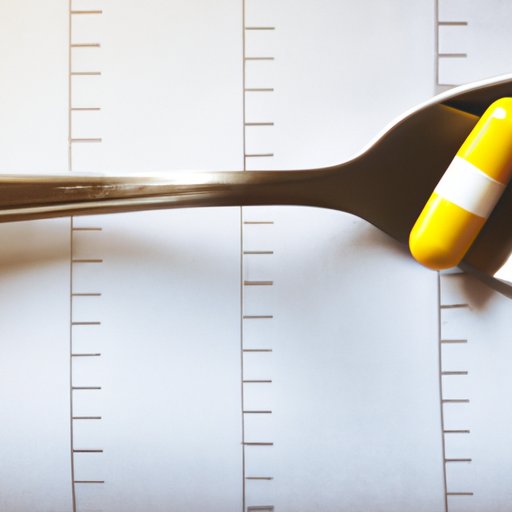
Introduction
Weight gain is a common issue that affects many people worldwide. While the factors contributing to weight gain are diverse, recent research has found a link between low Vitamin D levels and weight gain. Vitamin D is an essential nutrient that plays a vital role in many bodily processes, and a lack of it can have adverse effects on an individual’s health, including weight gain.
The Link Between Vitamin D Deficiency and Weight Gain: What Science Says
Several studies have shown a strong link between low Vitamin D levels and weight gain. In one particular study, researchers found that individuals with low levels of Vitamin D in their bloodstream were more likely to gain weight than those with healthy levels of the vitamin.
The study, which involved over four thousand subjects, found that those with low Vitamin D levels had a higher fat mass index and a higher body mass index than those with healthy levels of the vitamin. Another study published in the Journal of Women’s Health found that women with low Vitamin D levels had a higher risk of experiencing weight gain.
Why You Shouldn’t Ignore Your Vitamin D Levels
Vitamin D has several important functions in the body, including regulating calcium and phosphorus absorption, maintaining bone health, strengthening the immune system, and regulating insulin levels. When there is a deficiency of Vitamin D in the body, these functions are negatively impacted.
When it comes to weight gain, a Vitamin D deficiency is particularly concerning as it can impact an individual’s metabolism, hormones, and appetite. In turn, these factors can contribute to weight gain. Thus, it’s essential to maintain healthy Vitamin D levels to support overall health and weight management.
Vitamin D and Weight Loss: How to Incorporate it Into Your Diet
One way to incorporate Vitamin D into your diet is through consuming Vitamin D rich foods. Some of the best sources of Vitamin D include fatty fish like salmon and tuna, egg yolks, and fortified foods like dairy products and orange juice.
If you’re struggling to consume enough Vitamin D through food, supplementation is an excellent alternative. Vitamin D supplements are available over-the-counter, and doses can range from 400-2,000 IU per day. It’s important to consult with your healthcare provider before starting any supplements.
How to Know If You’re Vitamin D Deficient and What to Do About It
Vitamin D deficiency is a common issue, particularly in areas with limited sunlight exposure. The symptoms of a Vitamin D deficiency can include fatigue, muscle weakness, bone pain, and depression.
Supplementing Vitamin D through exposure to sunlight is one way to maintain healthy Vitamin D levels. However, it’s essential to be mindful of sunscreen use as it can block the skin’s ability to synthesis Vitamin D. If you’re unable to get enough sunlight, incorporating Vitamin D supplements into your diet is critical.
Vitamin D Deficiency: The Hidden Culprit Behind Your Weight Gain
While Vitamin D deficiency can be detrimental to overall health, its impact on weight gain is not well-known. In addition to impacting metabolism and hormones, a Vitamin D deficiency can also contribute to insulin resistance, which can lead to weight gain.
Thus, maintaining healthy Vitamin D levels should be a priority for anyone looking to manage their weight. Luckily, this can be achieved through proper diet and exposure to sunlight or supplements.
The Benefits of Exposure to Sunlight for Weight Loss
Exposure to sunlight is not only good for Vitamin D synthesis but also has other benefits related to weight loss. Sunlight has been shown to boost mood, improve sleep, and reduce stress. These factors can contribute to better weight management and overall health.
If you’re wanting to maintain healthy Vitamin D levels through sunlight exposure, it’s essential to get the right amount of sunlight. Experts recommend spending approximately 15-20 minutes in the sun each day, without sunscreen, to allow for adequate Vitamin D synthesis.
Why You Should Check Your Vitamin D Levels Before Starting a Weight Loss Plan
If you’re considering starting a weight loss plan, it’s important to check Vitamin D levels first. A Vitamin D deficiency can impact the effectiveness of your weight loss efforts. In turn, supplementing Vitamin D may be necessary to support weight loss.
Conclusion
Maintaining healthy Vitamin D levels is essential for overall health and weight management. A deficiency in Vitamin D can have adverse effects on the body, including weight gain. It’s important to incorporate Vitamin D-rich foods and supplements into your diet, spend time in the sun without sunscreen, and check your Vitamin D levels regularly. By taking steps to maintain healthy Vitamin D levels, individuals can support their overall health and wellbeing.





